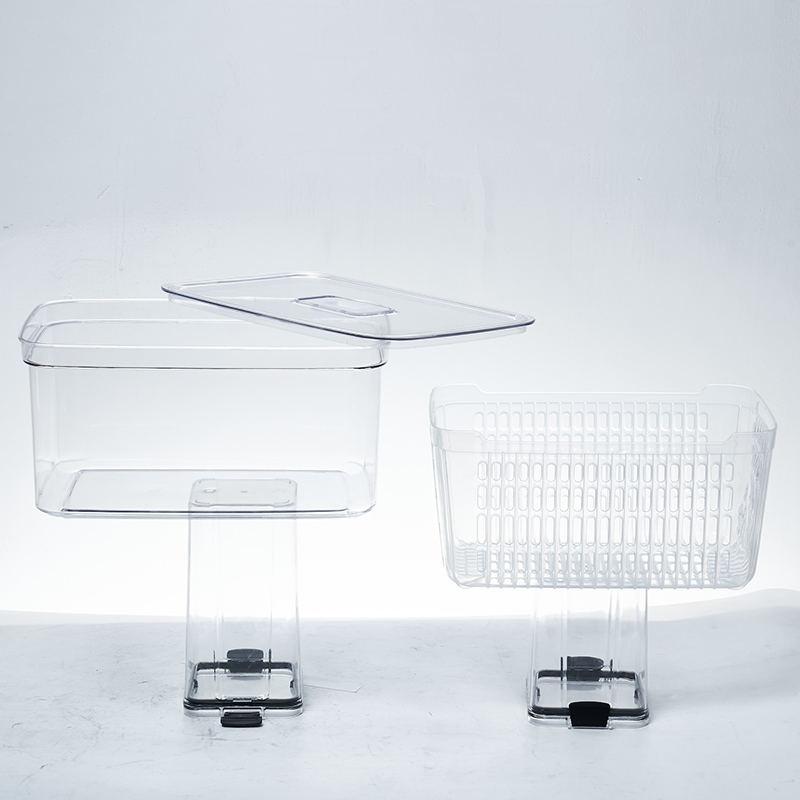How to Choose the Right Wheel Loader Tire L2 - Radial for Your Needs
2024-07-19
Introduction
Selecting the right tire for your wheel loader is crucial for maximizing performance, safety, and efficiency. With numerous options available, understanding the key factors to consider when choosing Wheel Loader Tire L2 - Radial can make a significant difference. In this blog, we'll guide you through the essential aspects to consider when selecting the best radial tire for your wheel loader.
Understanding Tire Specifications
1. Load Capacity
One of the first factors to consider is the load capacity of the tire. Ensure that the Wheel Loader Tire L2 - Radial you choose can support the weight of your wheel loader and the materials it will be transporting. Overloading a tire can lead to premature wear, reduced performance, and potential safety hazards.
2. Tread Pattern
The tread pattern of the tire affects its traction and stability on different surfaces. For wheel loaders operating on loose or uneven terrains, a more aggressive tread pattern is recommended. On the other hand, if your operations are mostly on smoother surfaces, a less aggressive tread pattern may be sufficient.
3. Tire Size
The size of the tire should match the specifications of your wheel loader. Using the correct tire size ensures optimal performance and safety. Check the manufacturer's recommendations for the appropriate tire size for your specific wheel loader model.
4. Ply Rating
The ply rating of a tire indicates its strength and durability. Higher ply ratings are suitable for heavy-duty applications and rough terrains. Consider the operating conditions of your wheel loader and choose a tire with an appropriate ply rating to ensure longevity and performance.
Evaluating Tire Quality
1. Brand Reputation
Choose tires from reputable brands known for their quality and reliability. Established manufacturers invest in research and development to produce high-performance tires that meet industry standards. Reading reviews and seeking recommendations can help you identify trustworthy brands.
2. Material and Construction
Examine the materials and construction methods used in the tire. High-quality radial tires are made from durable materials that offer excellent resistance to wear, punctures, and environmental factors. Ensure that the tire's construction meets the demands of your operational environment.
3. Warranty and Support
Consider the warranty and support offered by the tire manufacturer. A comprehensive warranty provides peace of mind and protection against manufacturing defects. Additionally, reliable customer support can assist with any issues or queries you may have during the tire's lifespan.
Cost Considerations
1. Initial Cost vs. Long-Term Savings
While high-quality Wheel Loader Tire L2 - Radial may have a higher initial cost, they often offer long-term savings through improved durability, fuel efficiency, and reduced downtime. Evaluate the overall value and potential cost savings over the tire's lifespan rather than focusing solely on the upfront price.
2. Maintenance Requirements
Consider the maintenance requirements of the tire. Regular maintenance, such as proper inflation and alignment, can extend the tire's lifespan and optimize its performance. Choose a tire that aligns with your maintenance capabilities and schedule.
Matching Tires to Applications
1. Construction Sites
For construction sites with rough and uneven terrains, choose a Wheel Loader Tire L2 - Radial with an aggressive tread pattern and high ply rating. This ensures excellent traction, stability, and durability under demanding conditions.
2. Quarries and Mines
In quarries and mines, where wheel loaders face extreme conditions, select tires with robust construction and superior heat dissipation capabilities. High load capacity and puncture resistance are essential for safe and efficient operations.
3. Agricultural Settings
For agricultural applications, consider tires with good traction on soft soils and fields. The tire should provide stability and support for transporting materials and equipment across varying terrains.
4. Industrial Facilities
In industrial facilities with smoother surfaces, choose tires with a less aggressive tread pattern that offers stability and fuel efficiency. Ensure the tire's load capacity matches the weight of the materials being handled.
Conclusion
Choosing the right Wheel Loader Tire L2 - Radial involves considering various factors, including load capacity, tread pattern, tire size, ply rating, and overall quality. By evaluating these aspects and matching the tire to your specific application needs, you can enhance the performance, safety, and efficiency of your wheel loader. Investing in high-quality radial tires from reputable brands will lead to long-term savings and improved operational outcomes.



